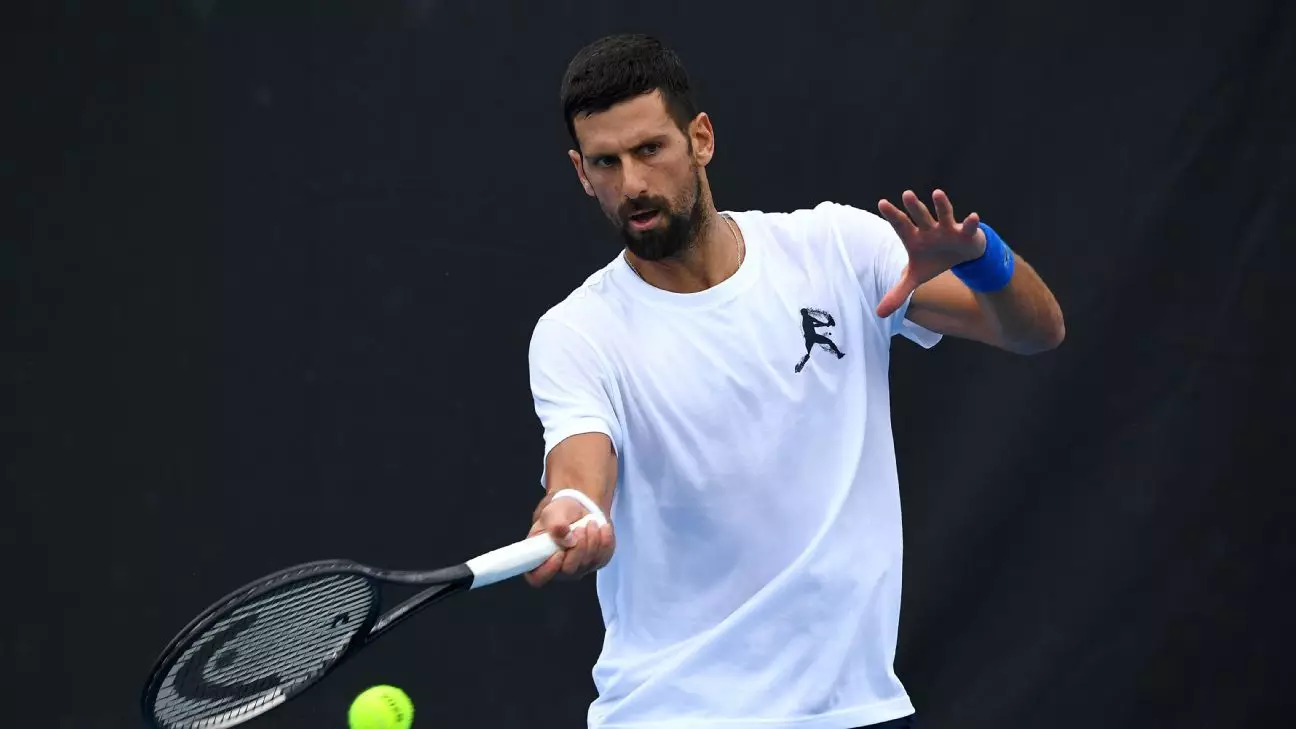As Novak Djokovic prepares to make a long-awaited return to the tennis court at the Brisbane International, the attention surrounding his comeback is magnified not only by his ambitions for another Grand Slam title but also by the underlying issues that threaten the sport’s integrity. Djokovic, a former world No. 1 and tennis icon, aims to secure a record-breaking 25th Grand Slam title at the upcoming Australian Open. However, instead of solely focusing on his on-court performance, he finds himself entangled in broader discussions about doping controversies surrounding high-profile players, particularly the case involving top-ranked Jannik Sinner.
Djokovic’s concerns stem from a feeling of being kept in the dark regarding Sinner’s doping allegations, which he expressed candidly during a press conference prior to his match in Brisbane. He emphasized his frustration about what he perceives as a lack of transparency in the handling of doping cases within the sport. While Djokovic did not affirm or deny Sinner’s guilt, he called into question the fairness of how these cases are managed and the impact this has on players of different rankings. This sentiment resonates deeply within the tennis community, which has seen numerous players suspended or accused but with varying levels of scrutiny and punishment.
The discrepancies in how anti-doping regulations are enforced, and the communication surrounding these issues, raise important questions about fairness in the sport. Djokovic’s remarks highlight a fundamental concern: while high-profile players sometimes seem to evade harsher penalties or prolonged scrutiny, lesser-ranked players continue to face lengthy wait times for resolutions to their cases, regardless of their innocence.
The International Tennis Integrity Agency (ITIA) has recently faced criticism for its handling of doping allegations against players, including Sinner and former world No. 1 Iga Swiatek, who also faced repercussions after testing positive. The disparity in outcomes raises eyebrows; Sinner tested positive but sidestepped a ban due to a ruling that found him not at fault, although the World Anti-Doping Agency has since appealed that decision. Conversely, Swiatek accepted a short suspension after her positive test, further complicating the narrative regarding how different cases are treated.
Djokovic’s insistence on transparency signals a desire for a collective understanding of how the sport should proceed in these sensitive matters. The tennis community yearns for clarity, particularly when some players receive what appears to be leniency while others endure harsher consequences. In his assertion that money and legal backing may influence outcomes, Djokovic invites a critical examination of the structures that govern anti-doping measures in sports.
Despite the brewing storm over doping allegations and the inconsistent application of rules, Djokovic remains undeterred in his quest for greatness this season. His personal journey post-knee surgery has been challenging, as he strives to recapture top form and compete at events like the Australian Open, where he has historically performed exceptionally well. The addition of Andy Murray as a coach, a former rival and compatriot, underscores Djokovic’s commitment to improving both technically and strategically as he embraces a new chapter in his career.
The tension arising from these controversies is a potent reminder that the world of professional sports is layered with intricate challenges. Djokovic’s openness about his experience on the court, juxtaposed with his concerns about the system as a whole, reveals a multifaceted athlete who is not just a competitor but also a critical observer of the sport’s governance.
As Djokovic steps into the limelight at Brisbane International this week, his dual role—as a player and commentator on the state of tennis—serves as a powerful reminder of the urgency for reform. The sport stands at a crossroads, needing to address the fraught issues around doping with integrity and consistency. A focus on equality—ensuring that all players, regardless of their status or financial power, are treated fairly—is essential in restoring confidence in the sport’s governance.
Through his advocacy, Djokovic left an indelible mark, encouraging dialogue about potential reforms in anti-doping protocols while navigating his own path back to competitive tennis. By pushing for transparency and fairness, Djokovic not only seeks personal success but also the betterment of his beloved sport.

